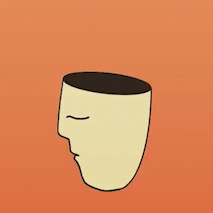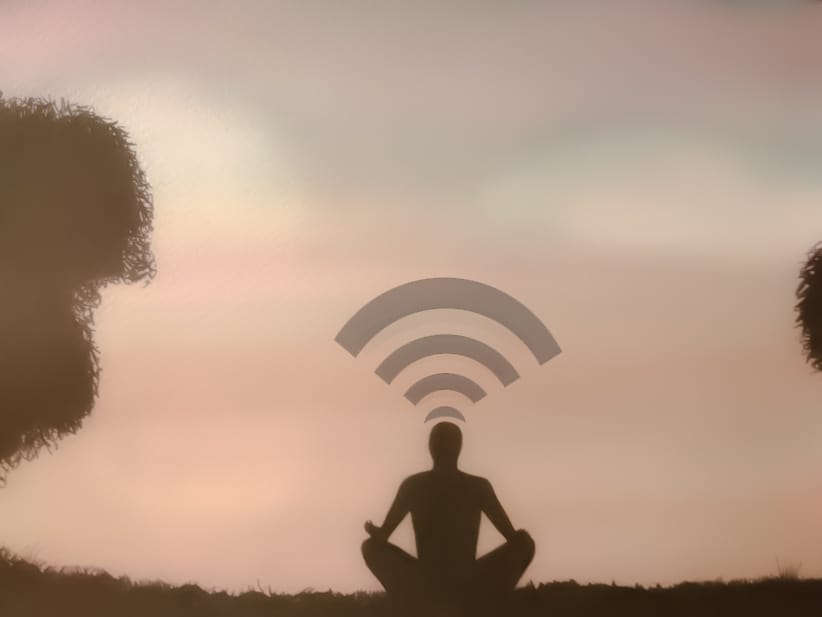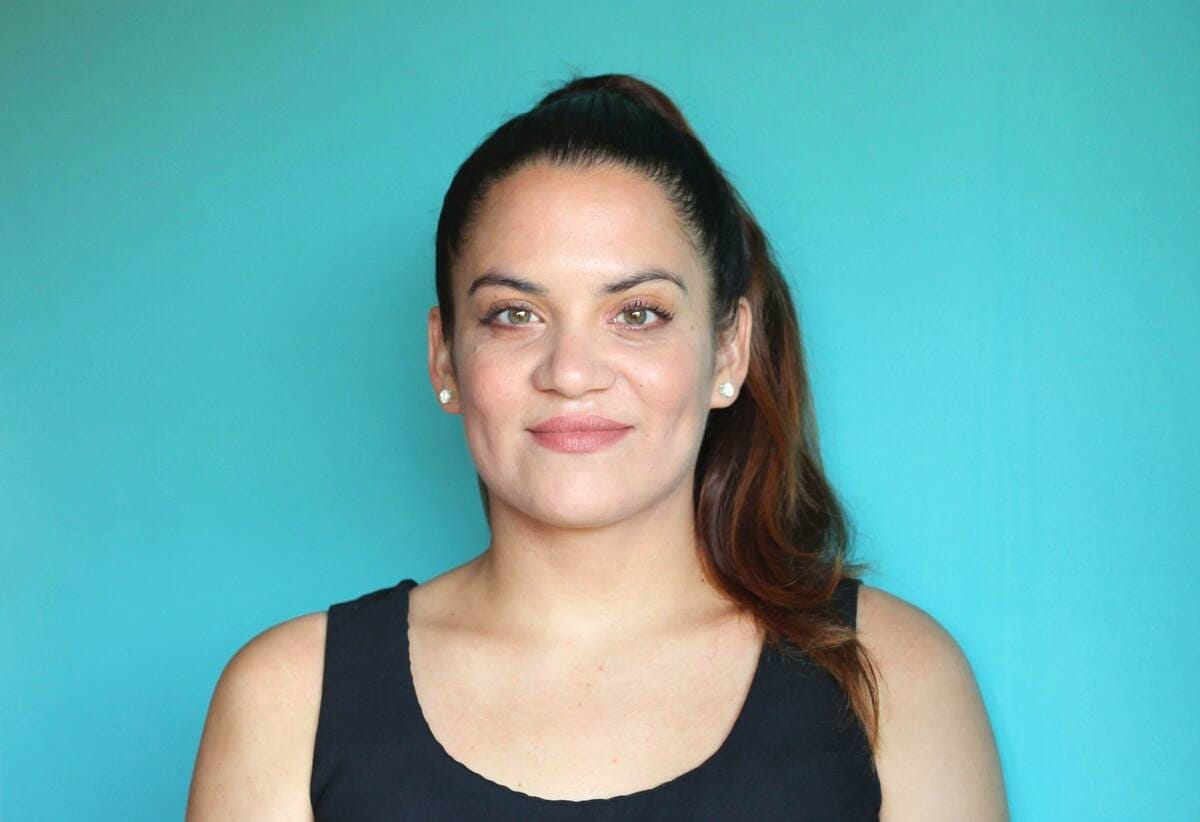
Who are you?
If your name disappeared, would you still be "you"?
In the absence of words, could the sense of self still exist?
What if everything about how you look, where you come from, and what you believe changed? What parts of you would still feel like the real “you” that you know inside?
I've always been interested in these questions because they help us understand what makes us who we are.
Every time I attend a social event and people take turns introducing themselves, the focus usually revolves around their jobs, names, nationality, or age.
Interestingly, even after these brief introductions, I don't feel like I know the person any better. I continue to engage in the conversation, but in my mind, I wonder, "What if we took away all those things you mentioned? would you still be the same person?"
All these questions make me dive deeper into the nature of identity.
As we dive into the fascinating world of neuroscience, we discover that our perception of self and this inherent separation mechanism originate within the brain.
Several studies have explored brain regions associated with self-processing and self-referential thinking. Their findings suggest that "The self" lights up in different parts of the brain according to culture.
For example, in Western societies, where individualism is valued, it has been observed that areas of the brain associated with self-awareness and personal identity, such as the medial prefrontal cortex, may be more active when individuals think of themselves as unique and autonomous individuals.
In Asian cultures that value collectivism, it has been found that areas of the brain associated with social interconnection, such as the dorsolateral prefrontal cortex, may be more active when individuals think of themselves in relation to others.
So, imagine our brain as a special place where we perceive ourselves and how we separate from others. It's like a map that lights up in different ways depending on our culture.
WHAT IS IDENTITY OR SELF-PERCEPTION?
The sense of self exists as a subjective experience that is intertwined with our thoughts, emotions, sensations, and experiences.
It is not a completely independent entity that is in control of everything.
Just, as for example, the beating of the heart is connected to the functioning of the organs in the body, the sense of self is interconnected with our various psychological and physiological processes.
The illusion lies in the idea of separation as if the self exists independently and controls everything.
So, after learning that the idea of a separate "self" that makes choices is an illusion...
DO WE HAVE FREEDOM OF CHOICE?
I see it this way.
Even though our sense of self is interconnected with our thoughts, emotions, and experiences, we STILL have the ability to make decisions and take actions based on our values, desires, and intentions.
The idea of breathing can help illustrate the concept:
Breathing is something that can occur naturally and automatically without our conscious effort, like when we're not actively thinking about it. This represents the unconscious aspect of breathing.
Similarly, when it comes to freedom of choice, automatic and unconscious processes influence our decisions and behaviors.
These unconscious influences can shape our choices without us fully realizing them.
However, just as we can bring conscious awareness to our breath and intentionally modify it, we can also bring conscious awareness to our decision-making process.
WHAT ARE THE CONSEQUENCES OF LIVING IN AUTO-PILOT MODE?
It restricts your potential and narrows your choices.
Your likes and dislikes become conditioned by the limited idea you hold about yourself.
Imagine someone who thinks that their job is the most important thing about them. They believe that it defines who they are as a person.
When the time comes for them to retire, they may struggle to define their purpose and find fulfillment outside of work.You will tend to chase after external achievements because you believe it will make you solve your problems.
This is because your sense of self is influenced by your experiences, emotions, and the beliefs you have about yourself.For example, let's say there's a kid who feels like they don't belong in their family. They might develop a coping mechanism of trying to please others in order to feel loved and accepted. As they grow up, their sense of self becomes tied to the idea that they need to be in a fulfilling relationship to be happy.
You will live under the control of the belief that you are not good enough.
As your sense of self creates a perception of separateness, it needs to constantly prove itself, seek validation, and compare itself to others.
That’s why sometimes we call it “the inner critic”.
If you believe that you need to constantly strive for more, achieve more, or be better in order to feel complete or worthy, you will live a life of inadequacy and suffering.
It can lead you to adopt a victim mindset.
When you operate on autopilot, you may feel like life is happening to you rather than actively participating in it. You may blame external circumstances for your unhappiness and believe that you have little control over your own life.
For example, a child who has experienced bullying in the past might believe as an adult that they are not deserving of friendship or happiness because of what happened to them.
5 STEPS TO FREEDOM

Awareness
The first step is becoming aware that you are living in auto-pilot mode. As we mentioned before with the example of breathing, you can live your life consciously or unconsciously.
Question your decisions and desires based on self-observation and be engaged in the present moment.
Introspection
Once you are aware of your auto-pilot tendencies, the next step is to engage in introspection. This means taking the time to reflect on your thoughts, emotions, and actions.
By understanding yourself better, you will identify patterns, beliefs, and behaviors that may be keeping you stuck on auto-pilot.
Responsibility
Taking responsibility for your own life means recognizing that you have the power to make choices and create change.
Instead of feeling like a victim of circumstances, you empower yourself by taking ownership of everything that happens in your life.
Practice
The more you practice being present and making conscious choices, the more you break free from the automatic patterns that keep you in auto-pilot mode.
This can involve mindfulness exercises, setting intentions, and actively engaging in activities that align with your values and desires.
In conclusion, the journey of self-discovery is not about eliminating your natural tendencies, the inner critic or “ego”.
It’s a part of who we are as humans.
Acceptance doesn't mean you agree with the inner critic's every word or let it control you. It's about being okay with the fact that you have moments of self-doubt or self-criticism, but you don't have to let it consume you.
By accepting and integrating it, you create space for self-compassion, self-acceptance, and growth. It becomes a tool for self-reflection rather than a constant source of negativity.
Katja Zandecki
